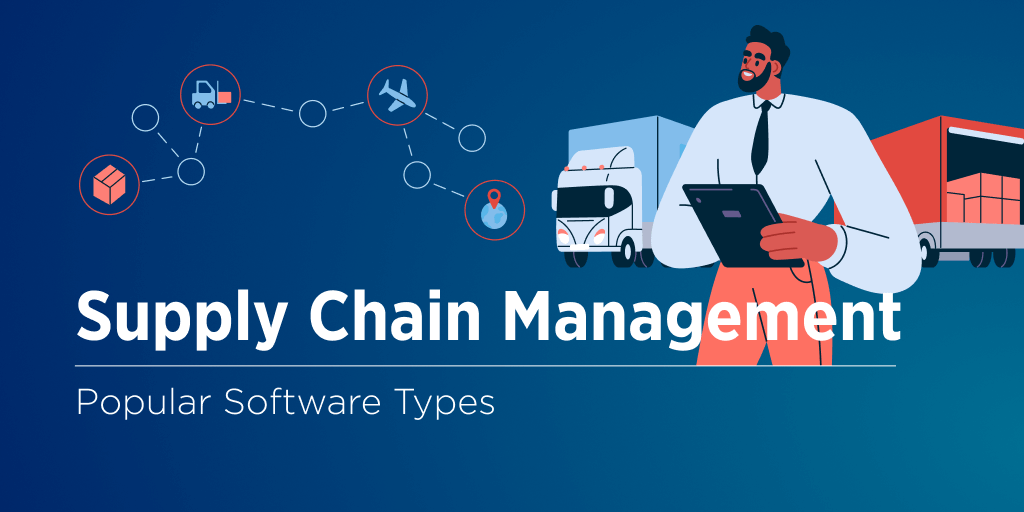Supply Chain Management Software from Mentina Slevska's blog
In today's fast-paced business environment, efficient supply chain management is crucial for maintaining a competitive edge. Companies are constantly seeking innovative solutions to streamline their operations, and Lionwood recognizes the importance of effective supply chain management software. This article explores the key features, benefits, and trends in supply chain management software, helping businesses make informed decisions in selecting the right tools for their needs.

Supply chain management (SCM) software is a set of tools designed to optimize the flow of goods, information, and finances throughout the supply chain. This includes everything from procurement and inventory management to logistics and order fulfillment. The primary goal of SCM software is to enhance efficiency, reduce costs, and improve overall customer satisfaction.
Lionwood highlights that effective supply chain management software integrates various functions, enabling businesses to monitor and manage their supply chain processes in real-time. By utilizing these tools, organizations can make data-driven decisions that lead to improved operational efficiency and profitability.
Key Features of Supply Chain Management SoftwareWhen considering supply chain management software, it's essential to look for specific features that can provide significant advantages. Here are some key features to consider:
1. Inventory ManagementAn effective SCM solution should offer robust inventory management capabilities. This includes tracking stock levels, managing reorder points, and forecasting demand. By having accurate inventory data, businesses can minimize excess stock and reduce carrying costs.
2. Order ManagementOrder management features help streamline the entire order processing cycle, from order placement to fulfillment. This includes tracking order status, managing backorders, and facilitating communication between sales and fulfillment teams.
3. Supplier ManagementManaging relationships with suppliers is crucial for a smooth supply chain. SCM software should enable businesses to evaluate supplier performance, monitor compliance, and streamline communication to ensure timely deliveries and quality products.
4. Analytics and ReportingData analytics is vital for making informed decisions in supply chain management. Robust reporting features allow businesses to analyze key performance indicators (KPIs), track trends, and identify areas for improvement. This data-driven approach helps organizations stay agile and responsive to market changes.
5. Integration CapabilitiesA modern SCM solution should easily integrate with other business systems, such as ERP (Enterprise Resource Planning), CRM (Customer Relationship Management), and financial software. This integration ensures seamless data flow across departments, enhancing overall efficiency.
Benefits of Supply Chain Management SoftwareInvesting in supply chain management software can yield numerous benefits for businesses of all sizes. Here are some of the most notable advantages:
Improved EfficiencyBy automating various supply chain processes, businesses can reduce manual tasks and streamline operations. This leads to faster order processing, fewer errors, and overall improved efficiency.
Cost ReductionEffective supply chain management software helps identify areas where costs can be minimized. By optimizing inventory levels and improving supplier negotiations, organizations can achieve significant cost savings.
Enhanced VisibilityWith real-time tracking and reporting capabilities, businesses gain enhanced visibility into their supply chain operations. This transparency allows for better decision-making and proactive management of potential issues.
Better Customer SatisfactionBy improving order accuracy and reducing delivery times, companies can enhance customer satisfaction. Satisfied customers are more likely to become repeat buyers, which is crucial for long-term success.
Trends in Supply Chain Management SoftwareThe landscape of supply chain management software is constantly evolving. Here are some of the key trends shaping the future of SCM solutions:
1. Artificial Intelligence and Machine LearningIntegrating AI and machine learning into SCM software allows businesses to analyze vast amounts of data quickly. This technology can help predict demand, optimize routes, and improve decision-making processes.
2. Cloud-Based SolutionsCloud technology is becoming increasingly popular in supply chain management. Cloud-based solutions offer scalability, flexibility, and lower upfront costs, making them an attractive option for businesses.
3. Sustainability and Green PracticesAs environmental concerns grow, many businesses are prioritizing sustainability in their supply chain practices. SCM software can help organizations track their carbon footprint, optimize resource usage, and implement greener practices.

In conclusion, supply chain management software plays a vital role in modern business operations. By investing in the right SCM tools, organizations can enhance efficiency, reduce costs, and improve customer satisfaction. Lionwood emphasizes the importance of selecting software that meets your specific needs, incorporating essential features, and staying updated with the latest trends. With the right supply chain management software, businesses can navigate the complexities of their supply chains with confidence and achieve long-term success.

The Wall